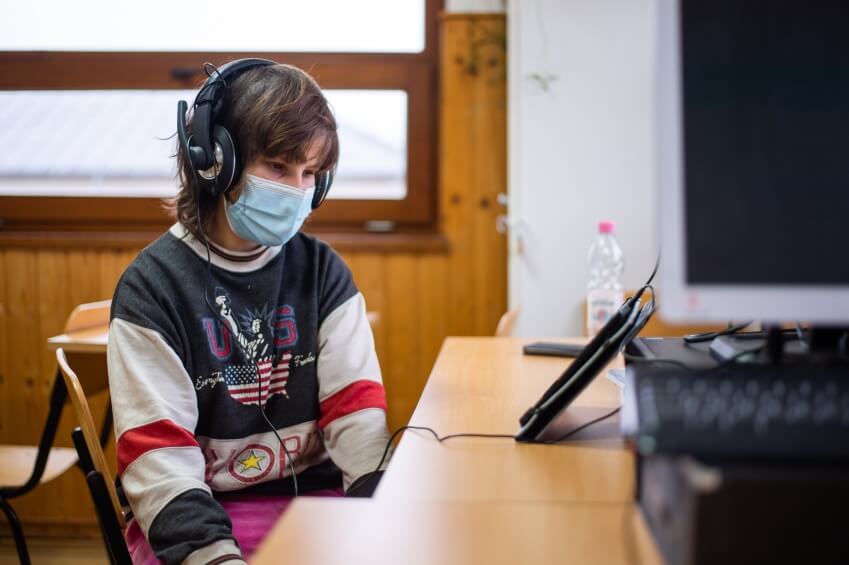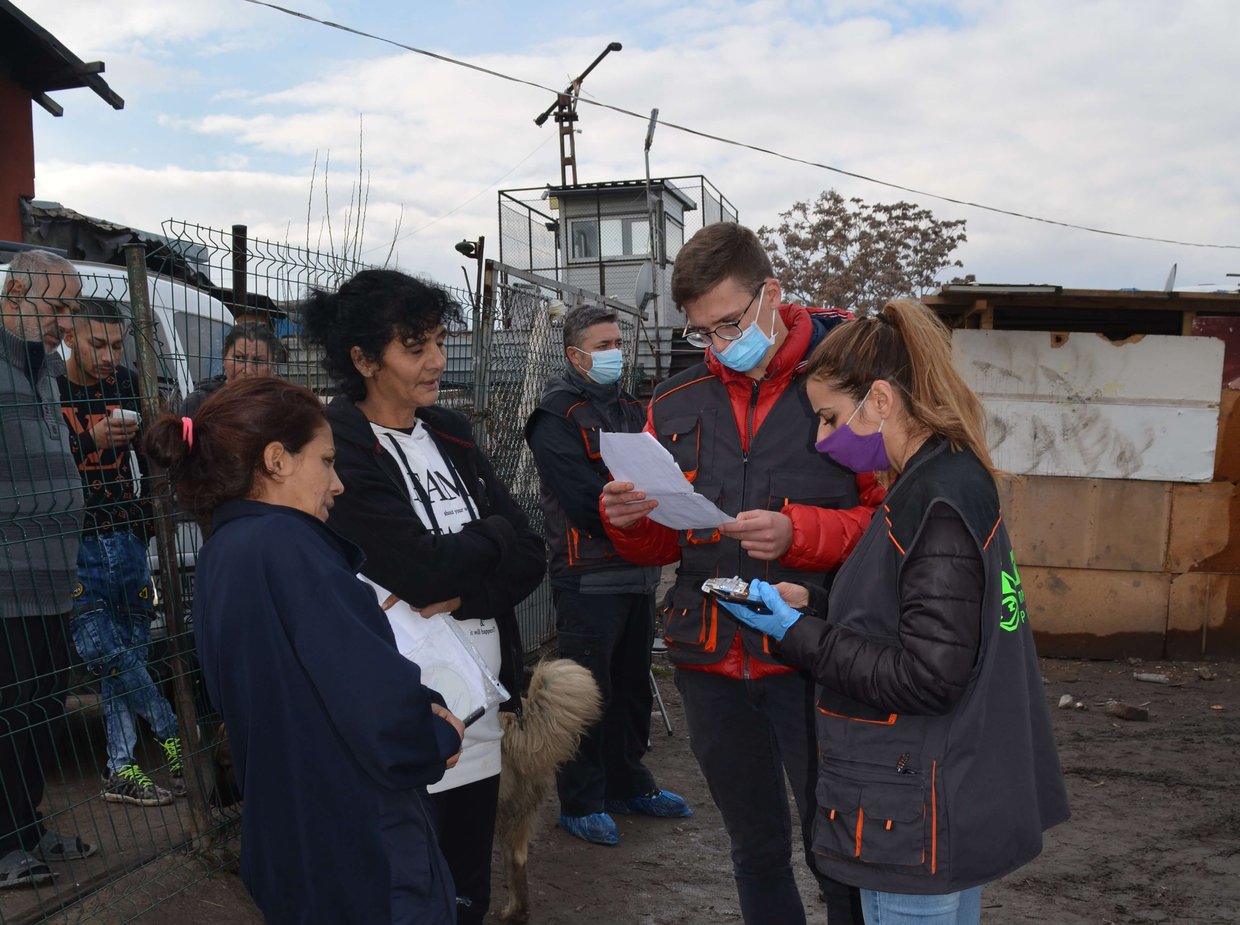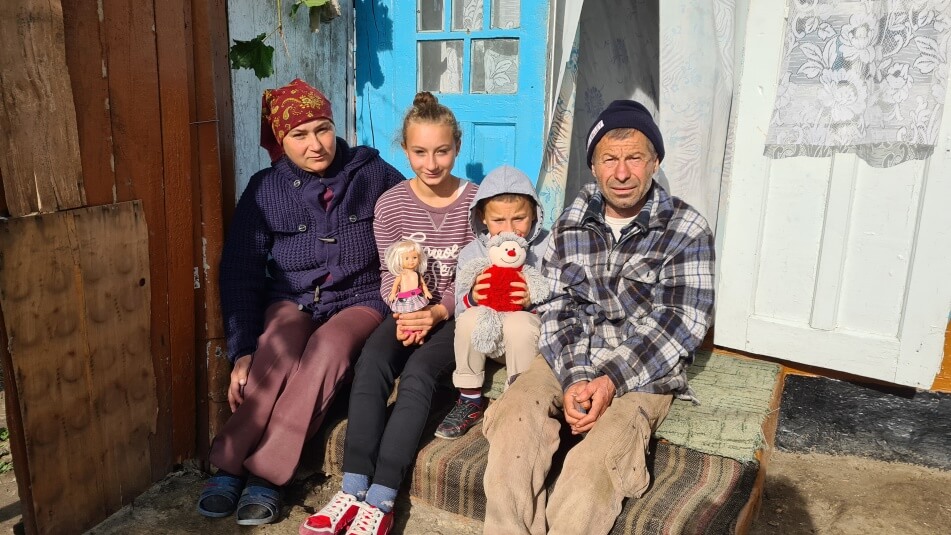#WorldHealthDay: For a fairer, healthier world!
07/04/2021: Although children are not at high risk of contracting the virus severely, they are disproportionately affected by its hidden effects.
In its campaign on the occasion of International World Health Day 2021, WHO advocates for a fairer, healthier world! According to WHO, half of the world's population has no access to essential health services. UN Secretary-General Antonio Guterres has made it very clear: 10 countries currently have 75% of the available vaccine.
It was only at the end of February 2021 that the global COVAX initiative for the equitable distribution of COVID-19 vaccines was launched, through which Kosovo finally received its first vaccine a few days ago. In our other project countries - especially the Republic of Moldova and Bulgaria - the rollout of the vaccine is also slow, there is a lack of vaccines.
COVID-19 has hit all countries hard, but the impact of the pandemic has been particularly devastating for poverty-stricken communities who were struggling to survive even before it.
The Corona pandemic has made the structural problems in the isolated slums and rural areas where we work even more visible. Although children are not at high risk of becoming severely ill from the virus, they are disproportionately affected by its hidden effects. Even before the outbreak of the COVID19 pandemic, massive inequalities existed for children and young people in terms of health risks, educational opportunities and quality of life.
Roma children are particularly vulnerable here - only one in two Roma children has access to early childhood education and care, and in some countries less than ten per cent of them complete secondary school. School closures and contact restrictions affect children's social development, education and emotional well-being. Children from less educated backgrounds in particular often lose out on schooling, and violence in families and mental health problems have increased significantly. Children and young people already suffering from extreme poverty and discrimination will be disproportionately affected by the economic downturn triggered by the COVID-19 pandemic, and some will feel the effects throughout their lives.
The pandemic represents a step backwards for the fight against existing inequalities. We are doing everything we can to counteract this.
How CONCORDIA is helping during the ongoing health crisis
Learning support: Many of the children and young people we look after in our education and social centres cannot follow the subject matter even in regular classes because they can barely read and write. This makes the help we provide in this area all the more important. With all means, precautions, and ongoing re-adjustment, we keep our social centres open. Learning deficits at a young age can lead to children falling behind in school and never being able to catch up. We do our utmost to prevent this! In our day centres, in addition to a hot meal and meaningful leisure activities, children are provided with tablets and the necessary help from our educators to participate in digital learning, which they would not be able to do without this support.

Corona-emergency response
Where our projects are located, we are usually the only point of contact for those affected. In times of crisis, quick solutions are often needed, especially where no one else can help. Bulgaria: The Sveti Konstantin transitional shelter was the only facility in Sofia open even during the lockdowns to receive people in need. A programme was also organised to deliver food parcels to poverty-stricken families who had lost their livelihoods due to the measure-related lockdown. During 2020, our mobile team delivered 3621 food parcels to the poorest families and their children in Sofia. Read more here.

Republic of Moldova: Our soup kitchens and multifunctional centres are spread all over the country.
In the lonely villages they are often a place of encounter, a social centre, and in winter the only source of warmth. Every day there is a hot meal for the elderly and children who gather there. 2020 was a particularly hard year for the people of the Republic of Moldova. Moldovan farmers had to battle a succession of disastrous weather phenomena, including extreme drought in winter, followed by spring frost and torrential rains that destroyed crops. Due to the pandemic, shops and markets were closed, leaving farmers unable to sell what little produce they had. State aid for the losses was almost non-existent. Thanks to many supporters, we were able to distribute emergency aid packages with the most important basic foodstuffs over the winter so that families particularly affected by poverty had enough to eat.
You can read more about our emergency aid programme in the Republic of Moldova here.


